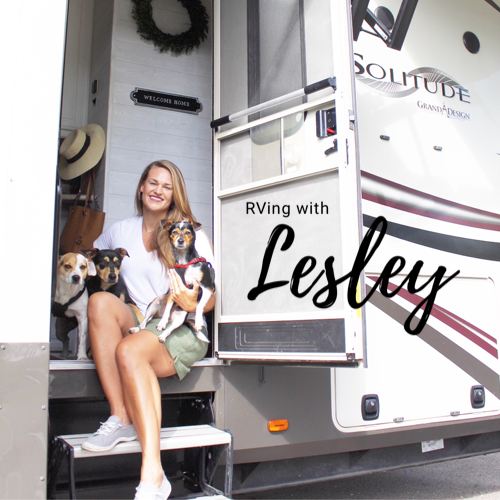If you have ever wanted to set out on a new adventure of RVing fulltime, transitioning can be difficult. Besides all the downsizing and the decisions on what type of RV or truck you want, etc there are a lot of unknowns. If your job to be a telecommuter is still not solid, or you are unable to travel immediately, but you want to go ahead and transition into an RV, you can try “stationary RV life” first. While stationary RV life may not be the most glamorous as fulltime travel, it has its perks of breaking you in slowly to the life and it can still feel like you at an everyday tailgating party if you find a good RV community to settle in with.
The biggest point I want to make about stationary life is sometimes it is very difficult to find long-term sites that accommodate RVs in the area you want to live. I have done stationary living in three different locations and it took a while to find a good spot that met all of our needs. Most parks have an explicit policy of no “home-steading” or only allow you to stay two weeks at time. Mobile home parks are usually coupled with “camping” sites and feel less like a community and more like a subdivision. Also there are usually more pet restrictions and closed off feel in mobile home parks due to the long-term residences who do not see this as a vacation home. RV parks that are more to my liking are outside urban areas and offer a sense of a resort, but, I want to be clear, those can be hard to find and may be too far away for your commute.
The ideal situation is the have you RV parked on your own property. This eliminates the closed-off feel, pet restrictions, and creates a sense of comfort and openness to do as you please. But owning property defeats one of the main benefits of living in an RV, which is lower cost of living and few ties to one location. Plus, the cost to buy land, put in water, electricity, and a septic tank is high. But if you can afford the upfront costs, you will always have a home base to return to, not have to pay rent or at least you are working toward owning land, a solid investment I would say, and never have to worry with dealing with the usual park restrictions. Speaking of restrictions, make sure you check with the county about any RV restriction they have on the land you wish to buy, because you can’t just park an RV any where unfortunately. Additionally, septic tanks are very regulated and if improperly installed can be a nightmare. I would estimate total cost for just water, electricity and a septic tank to be $6,000 to $7,000 alone.

If you are fortunate to find a good place to pull your RV into for a while, life resumes similarly to life in a house, but considerably downsized. Because of these you will find yourself outside more, enjoying nature and your neighbors and it can be really awesome. You can expand your space outside and have a cool patio setup and create a tailgate type environment that you just can’t get in a subdivision. I have even had a mobile garden! I have also met so many cool people that I would have never interacted with if I were not living in an RV. If you have never read my blog before, I always preach about how awesome the RV community is. They are usually so giving, helpful, and open that you fell very welcomed and safe in your environment. They generally love giving advice and sharing experiences. You will have a team of teams behind you and your new life in an RV if you just swing open your doors, let people in, and get outside! Happy camping!








